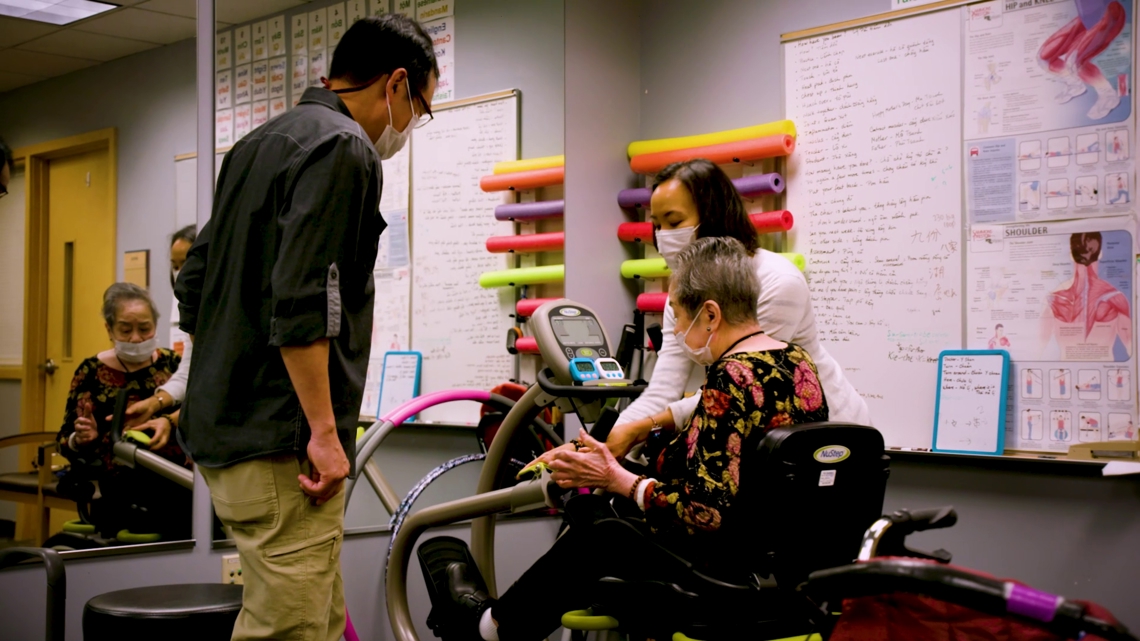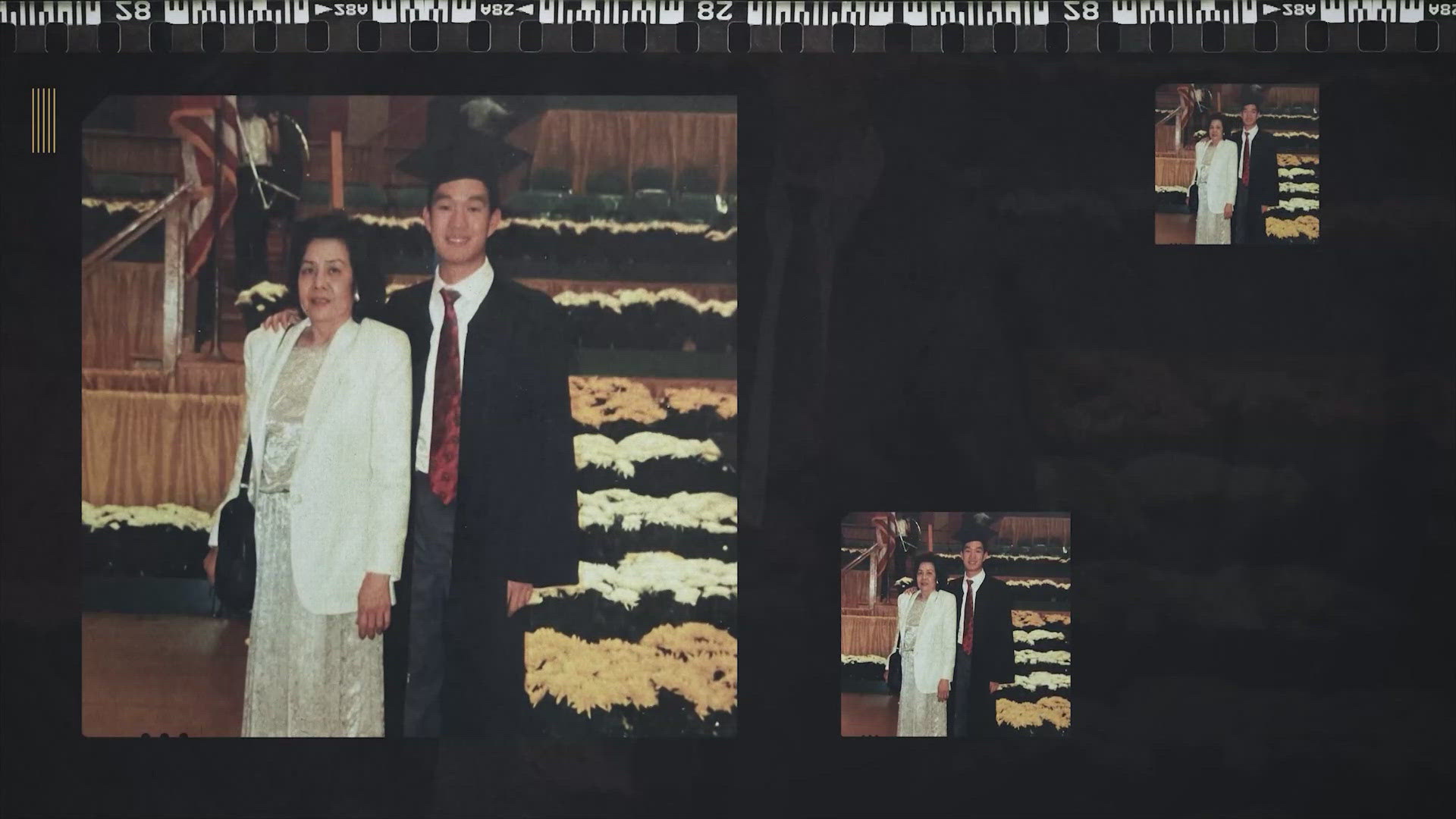SEATTLE — By 2060, foreign-born older adults will make up nearly a quarter of the United States' older population, according to data from the Census Bureau.
Immigrant families face unique challenges when it comes to navigating the elder care system. Language barriers and cultural differences make it more difficult to access resources and stay connected to their community as people age. This means adult child caretakers often face heavier burdens when looking after their immigrant parents in their old age.
In the early 1980s, Sam Ly and his mother, Ha, moved to the United States.
"When Vietnam fell for the communists in 1975... we left through a boat at the time," Sam said. "There were about 200 people that could cram underneath the deck."
Through an Italian humanitarian mission, the two made it to Seattle when Sam was 14, where they reside to this day.
He recalls the challenges of helping himself and his mother navigate this new experience started early.
"We were forced to grow up a lot faster," Sam said. "I learned that we have to become caregivers very early on. You end up worrying a lot more than any teenager at the time should be."
He said it was particularly hard to fully translate medical technical terms and act as a go-between for his mother and medical doctors.
Sam's mother, Ha, is now 88 years old. She is also battling stage 3 dementia.
"He's very important," she said. "I depend on (Sam) for everything."
Sam explained that it's "almost taboo" in his culture to send elderly parents to a senior home.
"You will do your best to care for them as long as you can," Sam said.
“My mom means a lot to me …She raised me pretty much on her own. I will try to reciprocate the same type of unconditional love to her to make her as comfortable as she can be.”
Psychologist Dr. Sally Chung explained that the concept of Filial Piety is a strongly held value in many Asian cultures. Derived from Confucianism, it means children are obligated to care for their elders the way their elders cared for them in childhood.
"We look at cultural values of familialism, cultural values of Filial Piety, and we layer on top of that the immigrant experience... you're told as a child, the family is all you have," Chung said. "It can help be a positive thing because you're upholding tradition, but this value can be a burden."
Caregivers of foreign-born adults report more care burden than caregivers of U.S. born older adults, according to the National Institutes of Health.
Chung said professionals see higher rates of depression and anxiety in the child caregivers of immigrant parents.
"I experienced, you know, a different level of depression," Sam said. "I can't say I've talked about a lot of this emotion with my mom. It will make her more guilty, or make myself more guilty."
Sam said over the years, his mother's isolation has increased, especially with the passing of her friends.
"I do feel lonely at home," Ha said. "I feel helpless. But there is nothing I can do to change the situation."
Sam said he believes his mother still carries a fear of being abandoned, stemming from her past. He shouldered the challenges of caring for his aging mother, navigating her progressing disease, and not knowing where to turn to.
"I think I underestimated the help that I need," Sam said. "It's not common to ask for this kind of help."
Numbers from the Columbia University Mailman School of Public Health estimate that there are around 45 million people serving as unpaid caregivers in the United States.
Ashley Van Oeveren with the International Community Health Services Program for All-Inclusive Care (ICHS PACE) said many immigrant families underestimate the help that's available in caring for their elderly loved ones. ICHS PACE offers resources for elderly immigrants and their caregivers.


"They have a fear of being a drain on the hospital system," Van Oeveren said. "So, they feel kind of stuck and isolated."
Earlier this year, Sam was able to find support both for his mother, and for his own mental health.
"The Paid Caregiver Program definitely helped," he said.
He has been able to connect his mother with others her age who speak the same language. He said he would recommend other immigrant families look into accessing this type of help.
"It definitely will ease the anxiety," Sam said. "(That) will improve the level of help that you can provide."
Explore the links below for more information about available elder care resources:
- DSHS: Caregiver resources
- ICHS-Pace: Offers personalized services for elderly immigrants, providing care at home or within the community - also offers resources and support for caregivers
- Community Living Connections
- CISC resources for senior and disabled adults

